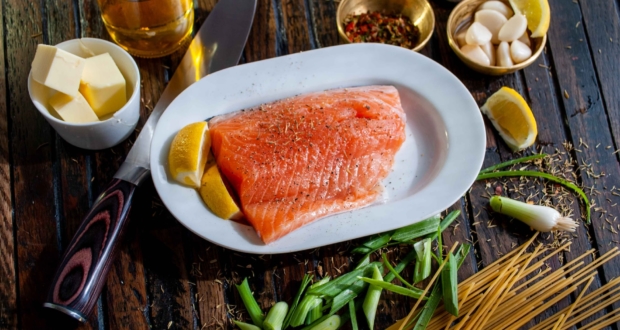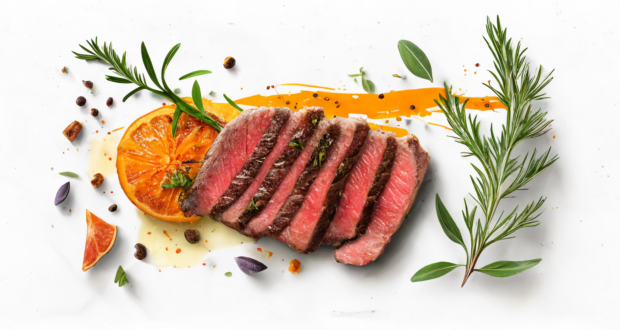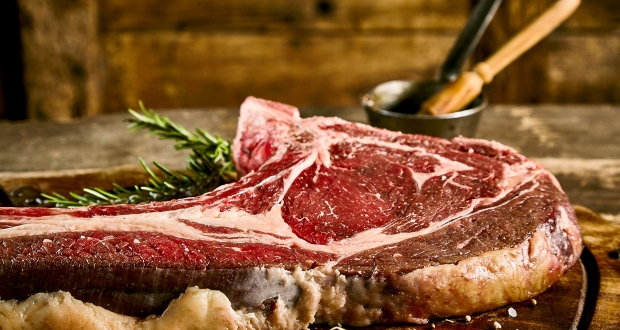In recent years, the Paleo diet has gained popularity among athletes as a way to optimize performance, improve recovery, and maintain overall health. This diet, based on the eating habits of our Paleolithic ancestors, emphasizes whole, unprocessed foods, such as lean meats, fish, vegetables, fruits, nuts, and seeds. But does the Paleo diet truly offer benefits for athletes? In this blog post, we’ll explore the potential advantages of adopting the Paleo diet, drawing on scientific studies that shed light on the diet’s impact on health markers relevant to athletic performance.
The Science Behind the Paleo Diet for Athletes
While there may not be a large number of studies specifically examining the Paleo diet in the context of athletic performance, there are some studies that have explored aspects of the diet or its effects on health and performance markers relevant to athletes. Two such studies include:
- Osterdahl, M., Kocturk, T., Koochek, A., & Wändell, P. E. (2008). Effects of a short-term intervention with a paleolithic diet in healthy volunteers. European Journal of Clinical Nutrition, 62(5), 682–685. https://doi.org/10.1038/sj.ejcn.1602790
- Frassetto, L. A., Schloetter, M., Mietus-Synder, M., Morris, R. C., & Sebastian, A. (2009). Metabolic and physiologic improvements from consuming a paleolithic, hunter-gatherer type diet. European Journal of Clinical Nutrition, 63(8), 947–955. https://doi.org/10.1038/ejcn.2009.4
These studies provide valuable insights into the potential benefits of the Paleo diet for athletes. Let’s take a closer look at their findings.
Study 1: Effects of a Short-Term Intervention with a Paleo Diet in Healthy Volunteers
In this study, researchers investigated the effects of a three-week intervention with a Paleo diet in healthy volunteers. The participants experienced significant improvements in glucose tolerance, blood pressure, and lipid profiles[^1^]. These results suggest that the Paleo diet may offer the following benefits for athletes:
Improved Glucose Tolerance
A key factor in athletic performance is the ability to efficiently use glucose for energy. Improved glucose tolerance means that your body can more effectively utilize carbohydrates as a source of fuel during exercise, potentially enhancing endurance and performance[^1^]. Moreover, better glucose tolerance can help prevent energy crashes and facilitate quicker recovery.
Lower Blood Pressure
High blood pressure is a risk factor for cardiovascular disease and can negatively affect athletic performance. The Paleo diet’s emphasis on whole, unprocessed foods and the elimination of processed foods high in sodium may contribute to lower blood pressure[^1^]. For athletes, maintaining healthy blood pressure levels can be crucial for optimal cardiovascular health and endurance.
Improved Lipid Profiles
The study found that participants experienced significant improvements in their lipid profiles, including lower levels of total cholesterol, LDL cholesterol, and triglycerides[^1^]. Healthy lipid levels are essential for overall health and may contribute to a reduced risk of heart disease. For athletes, maintaining a healthy lipid profile can support cardiovascular health and improve long-term performance.
Study 2: Metabolic and Physiologic Improvements from Consuming a Paleo Diet
In this study, researchers found that consuming a Paleo diet resulted in improved blood pressure, glucose tolerance, insulin sensitivity, and lipid profiles[^2^]. These findings further support the idea that the Paleo diet may offer potential benefits for athletes, such as:
Enhanced Insulin Sensitivity
Insulin sensitivity refers to how effectively your
body responds to the hormone insulin, which regulates blood sugar levels. Improved insulin sensitivity can help athletes better manage their energy levels and maintain steady blood sugar during exercise[^2^]. As a result, this can lead to enhanced endurance, reduced fatigue, and faster recovery.
Reduced Inflammation
The Paleo diet emphasizes the consumption of anti-inflammatory foods, such as fruits, vegetables, and healthy fats, while avoiding pro-inflammatory foods like processed grains and refined sugars[^2^]. For athletes, managing inflammation is crucial for injury prevention, optimal recovery, and overall health. By following a diet rich in anti-inflammatory foods, athletes may experience reduced inflammation, leading to better performance and faster recovery times.
Additional Potential Benefits of the Paleo Diet for Athletes
While the above studies provide insights into some of the potential benefits of the Paleo diet for athletes, there are other aspects of the diet that may further enhance athletic performance:
Optimal Nutrient Intake
The Paleo diet emphasizes the consumption of nutrient-dense whole foods, which can provide athletes with essential vitamins, minerals, and antioxidants necessary for optimal health and performance. Ensuring adequate nutrient intake can help support immune function, improve energy levels, and promote faster recovery.
Weight Management and Body Composition
The Paleo diet’s emphasis on whole, unprocessed foods and the elimination of refined sugars can help athletes manage their weight and maintain a healthy body composition. This can be particularly beneficial for athletes competing in weight-class sports or those looking to improve their power-to-weight ratio.
Enhanced Gut Health
The Paleo diet includes foods that are beneficial for gut health, such as fiber-rich vegetables and fruits, fermented foods, and bone broth. A healthy gut is crucial for efficient nutrient absorption, immune function, and overall health. For athletes, maintaining a healthy gut can lead to improved performance, reduced susceptibility to illness, and quicker recovery.
Conclusion
While more research is needed to directly examine the effects of the Paleo diet on various aspects of athletic performance, the available scientific evidence suggests that adopting a Paleo diet may offer several benefits for athletes. These benefits include improved glucose tolerance, lower blood pressure, healthier lipid profiles, enhanced insulin sensitivity, reduced inflammation, optimal nutrient intake, weight management, and improved gut health.
As with any dietary approach, it’s essential to tailor the Paleo diet to your individual needs and goals. Athletes should work with a sports nutritionist or dietitian to create a personalized nutrition plan that supports their specific sport, training schedule, and performance objectives. By incorporating the principles of the Paleo diet and adapting it to meet their unique needs, athletes can potentially unlock their full athletic potential and enjoy better health and performance.







